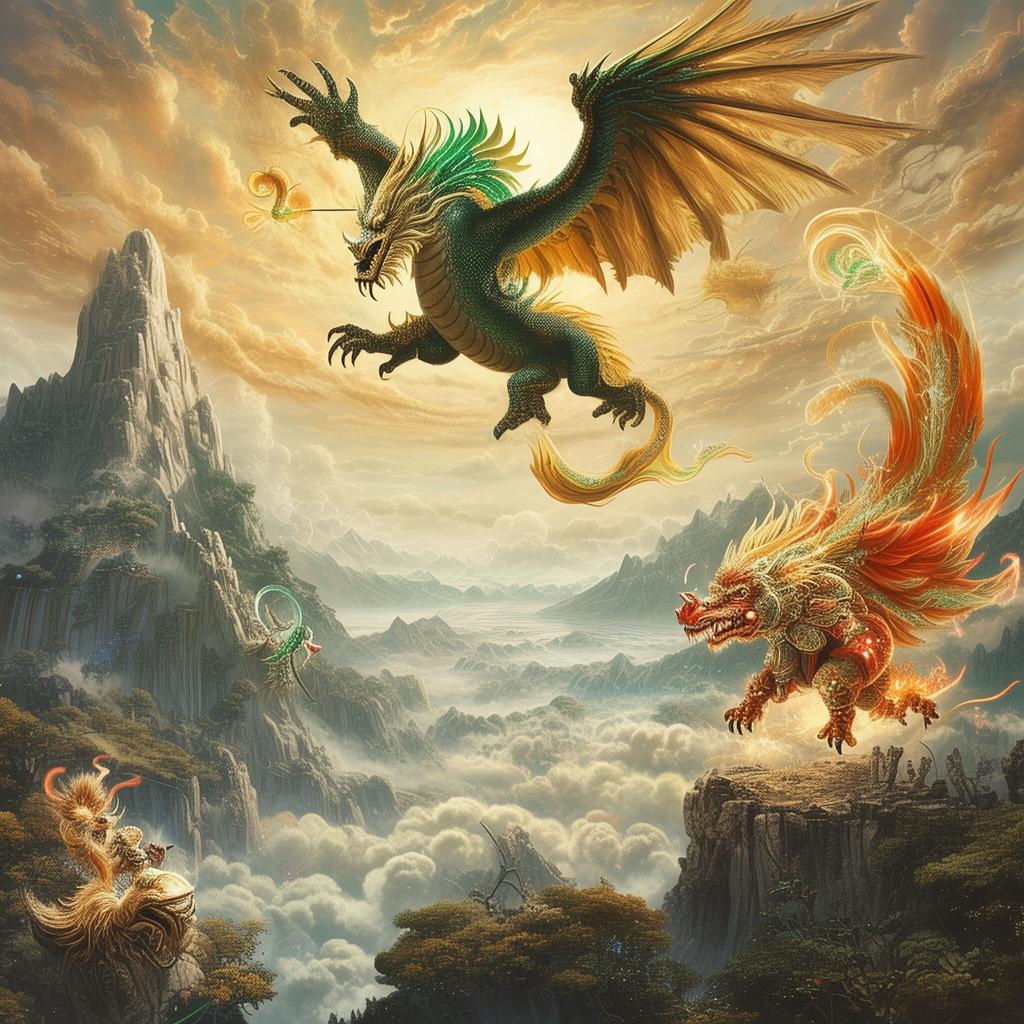Odyssey of Orpheus: The Labyrinth of Echoes
In the heart of the ancient world, where the sky was painted with the colors of gods and the earth whispered tales of heroes, there was a musician whose lyre could charm the very stones. His name was Orpheus, a mortal man who had won the heart of Eurydice, a nymph of the underworld. But their love was doomed, for Eurydice was torn from Orpheus' embrace by the Fates and taken to the land of the dead, Hades.
Orpheus, driven by the unyielding force of his love, resolved to enter the realm of the dead to claim his bride back. With a lyre in hand, a token of his art, and a heart brimming with the echoes of Eurydice's laughter, he embarked on the odyssey that would define his destiny.
The path to Hades was fraught with peril, for the land was rife with monsters and the air was thick with the scent of despair. Orpheus navigated through the treacherous rivers of Styx, crossed the bridges of Acheron, and traversed the fields of asphodel. His journey was long, and the weight of his sorrow was heavy upon his shoulders.
At the gates of the underworld, he encountered Cerberus, the three-headed hound, whose growls were as fierce as the whispers of the dead. Orpheus, with a song of courage, subdued the beast, and the gates of Hades creaked open to reveal the realm of the departed.
But this was no ordinary place. The underworld was a labyrinth, a maze of echoes that spoke the words of the lost and the forgotten. The labyrinth of Echoes was a place where the dead wandered, their voices mingling with the whispers of the living, and the air was thick with the weight of unspoken longing.
Orpheus pressed on, his lyre playing a melody that seemed to soothe the very stones of the labyrinth. But the labyrinth had a mind of its own. It was alive with the echoes of the dead, and each step Orpheus took seemed to draw him further into the labyrinth's embrace.

The echoes spoke of love and loss, of joy and sorrow, and of a love that could not be contained by death itself. Orpheus listened, his heart torn between the siren call of his own love and the chorus of voices that seemed to pull him in every direction.
As he ventured deeper, he encountered Charon, the ferryman of the underworld, who was to take him across the river Styx. But Charon demanded a coin for the crossing, and when Orpheus realized he had left his wallet behind, he was forced to turn back, for he could not leave Eurydice behind.
The labyrinth's echoes grew louder, and Orpheus, driven by his love, resolved to return to the living world to retrieve the coin. He sang a song of hope, and the dead listened, their echoes weaving a tapestry of encouragement.
When Orpheus returned, he had the coin, but he had also lost his way. The labyrinth had twisted his path, and he found himself back at the entrance, his heart pounding with the fear of never finding Eurydice.
With renewed determination, Orpheus pressed on, his lyre in hand, his love as his guide. He reached the entrance to the realm of the dead, where Hades awaited him. But Hades had a condition: Orpheus must not look back at Eurydice until they had reached the world of the living.
Orpheus and Eurydice crossed the river Styx, their hands intertwined, and ventured into the realm of the living. But as they approached the light of day, Orpheus, overcome with his love and the fear of losing Eurydice forever, turned back to look at her.
In that moment, Eurydice's spirit was torn from his grasp, for the Fates, who had decreed her fate, could not be undone. The echoes of the labyrinth, now free of Orpheus' presence, rose up and claimed their prize, and Eurydice's spirit was lost to him forever.
Orpheus, broken and desolate, wandered the world, his lyre silent, his heart a hollow void. The labyrinth of Echoes, now devoid of the echoes of love, lay in ruins, its purpose fulfilled.
And so, the odyssey of Orpheus became a tale of love, loss, and the haunting echoes of a labyrinth that had tested the limits of mortal love against the will of the gods. The story of Orpheus and Eurydice would be told for generations, a reminder that love, in its purest form, can transcend even the bounds of life and death, though the cost may be dear.
✨ Original Statement ✨
All articles published on this website (including but not limited to text, images, videos, and other content) are original or authorized for reposting and are protected by relevant laws. Without the explicit written permission of this website, no individual or organization may copy, modify, repost, or use the content for commercial purposes.
If you need to quote or cooperate, please contact this site for authorization. We reserve the right to pursue legal responsibility for any unauthorized use.
Hereby declared.









